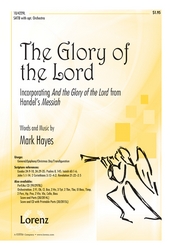Scripture References:
st. 2 = 1 Pet. 2:24
st. 3 = 1 Tim. 2:6
st. 4 = 1 Pet. 1:8
Although manuscript copies do not appear until the eleventh century, the Latin source for this Ascension text ('Jesu, nostra redemptio, amor et desiderium") is thought to date from the seventh or eighth century. A five-stanza English translation by John Chandler was published in his Hymns of the Primitive Church (1837), and a doxology stanza was added later. Of those stanzas, 1-3 and 5 are included with a few word changes.
This short but comprehensive text honors Christ as creator of the world (st. 1); meditates on his love, which led to his atoning death (st. 2); voices our worship to the ascended Christ for his victory over death (st. 3); and offers our prayer to keep Christ central in our lives (st. 4).
John Chandler (b. Widey, Godalming, Surrey, England, 1806; d. Putney, Surrey, 1876) spent most of his life in Widey, where his father was the vicar. After theological studies at Corpus Christi College, Oxford, England, he assumed his father's position in Widey in 1837. Noting that many of the prayers of the Anglican Church were English translations of early Latin prayers, Chandler decided that the church should sing hymns from that era as well. Because he did not find many suitable English translations, he made his own and published them in The Hymns of the Primitive Church (1837) and, with revisions, in The Hymns of the Church, mostly Primitive (1841). Some of the Latin hymns he translated, however, were not as ancient as the words "Primitive Church" might suggest; he also included translations of hymns from the Paris Breviary (1736).
Liturgical Use:
A hymn of response after the sermon; Easter; Ascension; many other worship services.
--Psalter Hymnal Handbook, 1988
======================
Jesu nostra redemptio, Amor et desiderium. [Ascension.] This fine hymn is probably of the 7th or 8th century. It is found in three manuscripts of the 11th century, in the British Museum, two of the English Church (Vesp. D. xii. f. 69; Jul. A. vi. f. 48 &.), and one of the ancient Spanish Church (Add. 30848, f. 153 fc.); in the St. Gall MS. No. 387, of the 11th century; in a manuscript cir. 1064, in Corpus Christi College, Cambridge (No. 391, page 247); and in the Latin Hymns of the Anglo-Saxon Church, 1851, L83, is printed from an 11th century manuscript at Durham (B. iii. 32, f. 24 6). It is in the old Roman (Venice, 1478), Sarum, York, Aberdeen, and many other Breviaries. The printed text in also in Daniel, I, No. 56; Mone, No. 173; J. Chandler's Hymns of the Primitive Church, 1837; and Card. Newman's Hymni Ecclesiae, 1838 and 1865. The use of Sarum was at Compline from the vigil of the Ascension to Whitsuntide; that of York at Lauds; and the Roman at Vespers. In the revised Roman Breviary of 1632 it begins, Salutis humanae Sator. This is repeated in J. Chandler's Hymns of the Primitive Church, 1837, No. 71, and Card. Newman's Hymni Ecclesiae, 1838 and 1865. [Rev. James Mearns, M.A.]
This hymn has been translation in both its original and in the Roman Breviary forms, as follows:—
i. Jesu nostra redemptio. The translations in common use are:—
1. 0 Christ, our hope, our heart's desire. By J. Chandler, in his Hymns of the Primitive Church, 1837, p. 83. This translation is the most popular of any of this hymn. In addition to being in common use in the original translation in some collections it was altered by the compilers of Hymns Ancient & Modern in 1861 to "Jesu, our hope, our heart's desire" (again altered in lines 2-4 of stanza i. in 1875), and in the Hymnary, 1872, to "O Jesu, our Redemption, Love." The Hymnary text is rewritten in L.M., and is much altered throughout.....
--Excerpts from John Julian, Dictionary of Hymnology (1907)


 My Starred Hymns
My Starred Hymns







